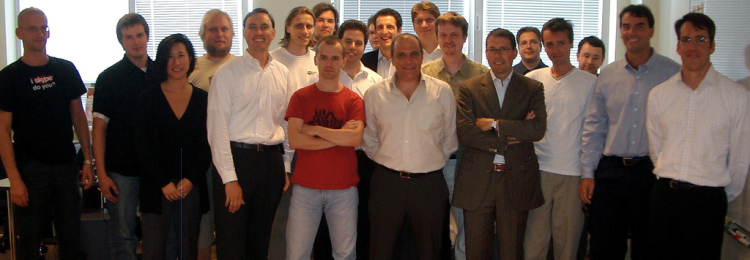


NEF Report ‘Five Ways to Wellbeing’ Identifies Important Role of Social Connections with Happiness
In the NEF’s report “Five Ways to Wellbeing: A report presented to the Foresight Project on communicating the evidence base for improving people’s well-being,” the factor stated to affect happiness the most is social connections. In 2008, at the request of the British government and financed by the British Ministry of Science (New Economic Foundation – NEF), in cooperation with the University of Cambridge, a comprehensive project was carried out, summarizing and comparing studies, identifying which factors affect the citizens’ happiness. The most influential factor is social connections. Out of the 5 recommendations suggested, 2 of them are directly connected to social relationships. Image: "Happy Monday" by Yasin...
The Destructive Effect of Negative Emotions in the Workplace
In the article “Emotional Contagion Can Take Down Your Whole Team,” Tony Schwartz, president and CEO of The Energy Project and the author of Be Excellent at Anything, describes how negativity begins in an office setting by one person talking and passing negative emotions from one to the other, and how negative emotions in this setting have destructive effect. Emotional contagion takes hold and as the negativity spreads, it drains the energy from the team and the company as a whole. The negative emotions temporarily overwhelm the capacity to assess the facts at hand. “How much do emotions matter in the workplace? Walk into any Department of Motor Vehicles and you’ll feel the impact of the prevailing mood instantly — a dense fog of sourness, irritability, and listlessness. Walk into almost any Apple store and you’ll experience the opposite — a sense of aliveness and excitement that raises your energy.” Schwartz tells a story of his personal experience with a senior executive, and lists some points that he had learned from the experience in the article. Image: "Gossip Walk" by...
Managerial Case Study Shows How Bringing People Together for a Common Meeting Gets Things Done Better than Holding Multiple Individual Meetings
In the article “Don’t Neglect Your Power to Bring People Together,” Ron Ashkenas describes a situation where a manager first tried fulfilling a certain task according to common managerial lines, of “calling meetings for their own direct staff and those who report to them.” However, although everyone agreed and got to work, little of the task’s goals were fulfilled. In frustration, the manager grouped all parties together for a common meeting, through which all the obstacles were discussed together, and after which the task’s goal became fulfilled to much greater effect. Then, Ashkenas continued to look into the reasons why managers don’t take steps initially to call common meetings outside their own staff and people who report directly to them, if the results of such meetings can be more effective. Some of the reasons Ashkenas mentioned included fears and anxieties in making sure no one is left out, preparing convincing cases as to why this is important for each member attending the meeting, the possibility of some or many of the invitees refusing to attend, as well as other fears. However, in conclusion, Ashkenas encourages managers to overcome these fears in order to convene people together since “bringing the right people together from across the organization (and even including suppliers and customers) is often the best way to get things done quickly.” Image: "Skype Reverie" by Steve...The Importance of Empathy and Quality Personal Interaction in the Future of Employment
What’s the crucial career strength that employers everywhere are seeking — even though hardly anyone is talking about it? A great way to find out is by studying this list of fast-growing occupations, as compiled by the U.S. Bureau of Labor Statistics. Sports coaches and fitness trainers. Massage therapists, registered nurses and physical therapists. School psychologists, music tutors, preschool teachers and speech-language pathologists. Personal financial planners, chauffeurs and private detectives. These are among the fields expected to employ at least 20% more people in the U.S. by 2020. Did you notice the common thread? Every one of these jobs is all about empathy. In our fast-paced digital world, there’s lots of hand-wringing about the ways that automation and computer technology are taking away the kinds of jobs that kept our parents and grandparents employed. Walk through a modern factory, and you’ll be stunned by how few humans are needed to tend the machines. Similarly, travel agents, video editors and many other white-collar employees have been pushed to the sidelines by the digital revolution’s faster and cheaper methods. But there’s no substitute for the magic of a face-to-face interaction with someone else who cares. Even the most ingenious machine-based attempts to mimic human conversation (hello, Siri) can’t match the emotional richness of a real conversation with a real person. Visit a health club, and you’ll see the best personal trainers don’t just march their clients through a preset run of exercises. They chat about the stresses and rewards of getting back in shape. They tease, they flatter — maybe they even flirt a little. They...
